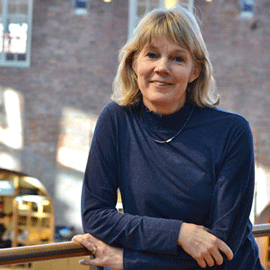KTH project will improve maths skills among girls

A KTH project on enhancing spatial ability to help close the gender gap in engineering subjects, secures over a €4M in Horizon 2020 funding.
KTH is a leading partner in a research project which aims to enhance the spatial ability of young people and to help close the gender gap in subjects such as science, technology, engineering and mathematics (so called STEM subjects).
Research has shown that those with high levels of spatial ability are much more likely to succeed in STEM subjects, enjoy doing them and select them for further education and careers compared to those with low spatial ability. The large gender gap in spatial ability in favour of males means women are over-represented in the low spatial ability group and more disadvantaged in STEM learning.

“Our researchers will develop methods to foster spatial ability among children through online learning, tactile activities, maker-space workshop, project-based learning, and integrated with the STEM curriculum”, says docent Lena Gumaelius at the department of Learning in Engineering Sciences.
Over four years SellSTEM, which is a consortium of ten European universities and eight non-academic partners, will develop innovative and practical approaches to improve spatial ability among young people in Europe, so they are better prepared for learning science, technology, engineering and mathematics subjects.
The project, Spatially Enhanced Learning Linked to STEM (SellSTEM), has been awarded €4.12M in funding from the Marie Skłodowska Curie Innovative Training Network under Horizon 2020, an EU 2020 flagship.
